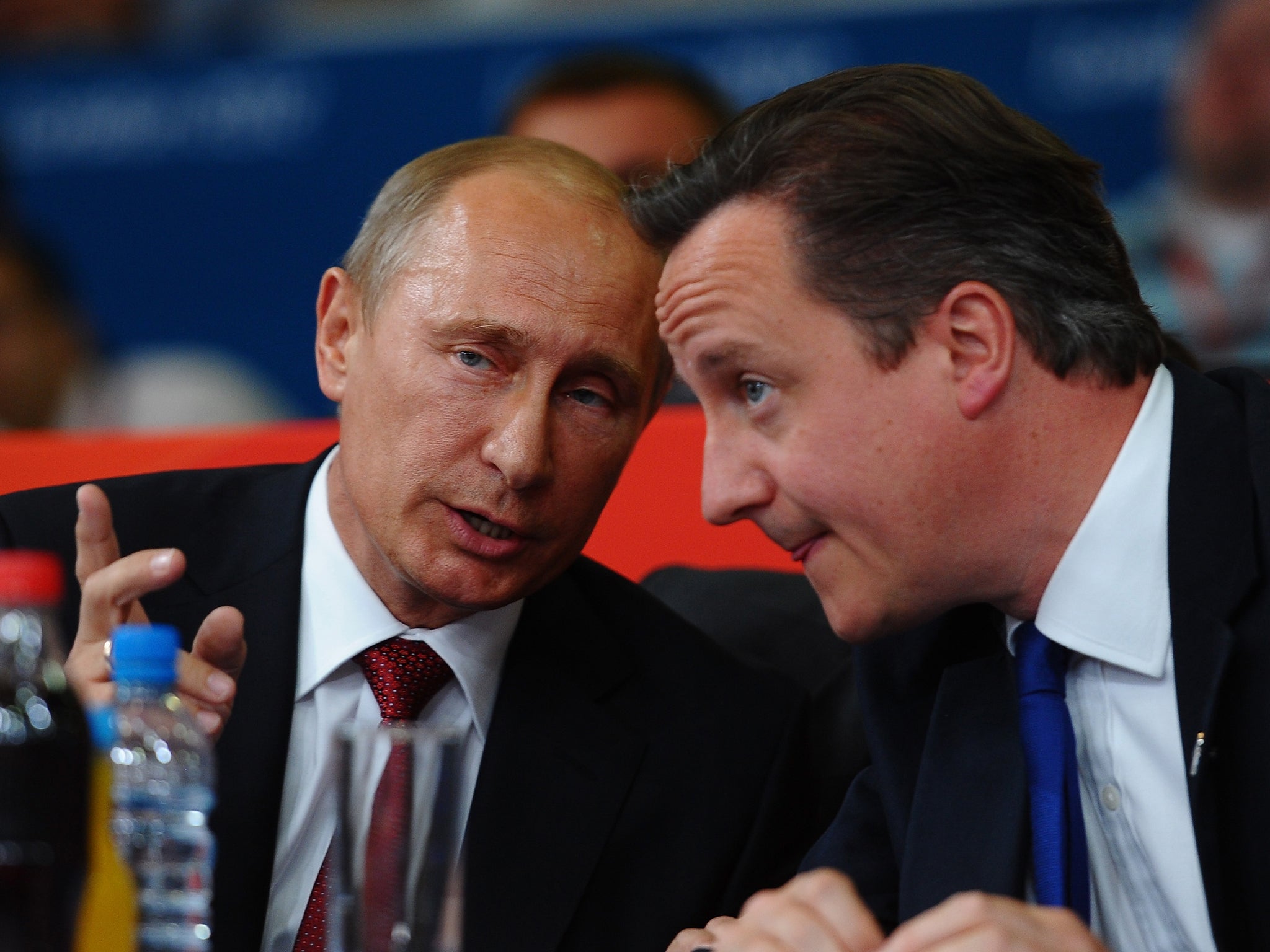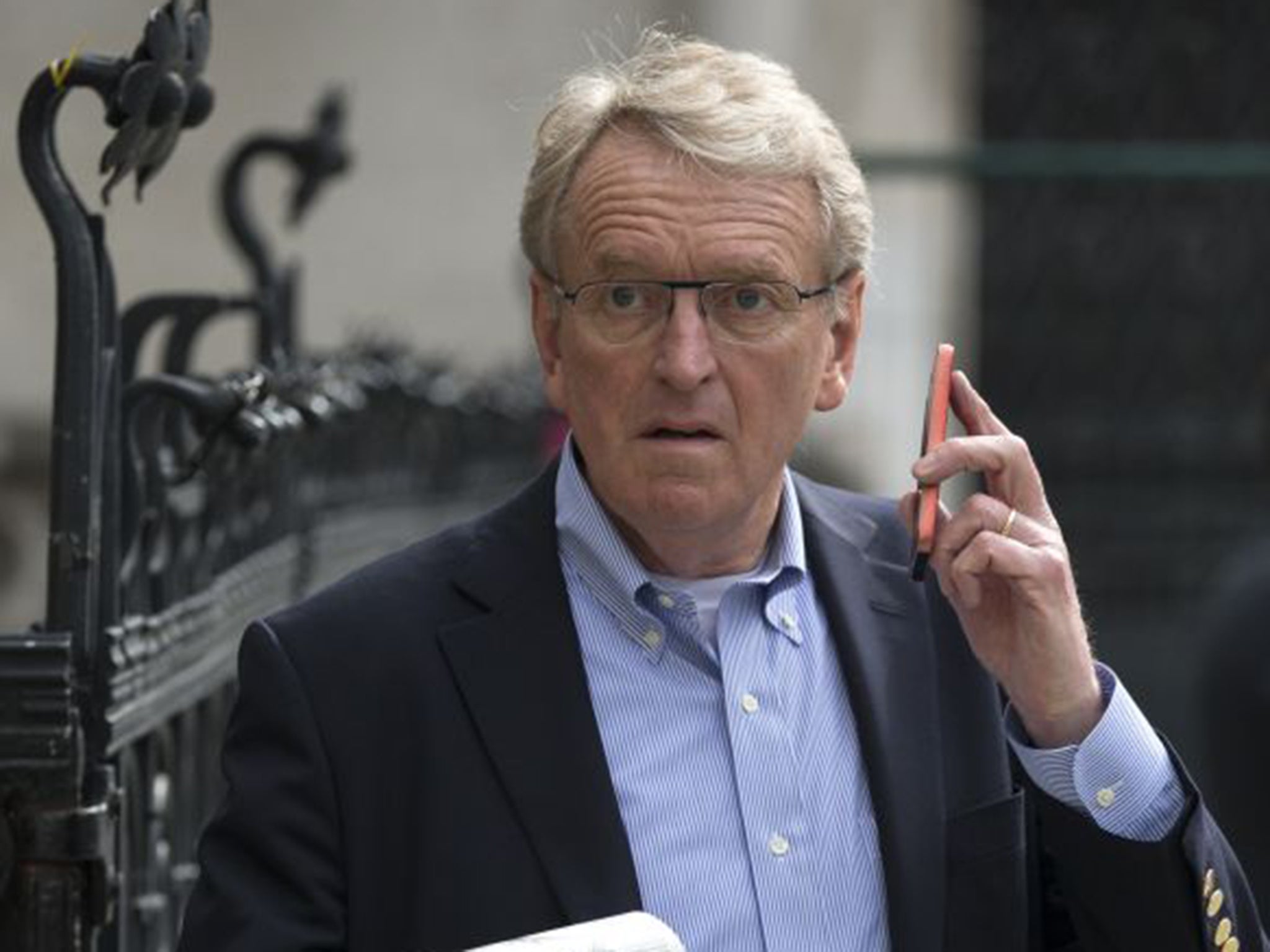UK may have to strike 'cynical' deal with Russia to defeat Isis, ex-diplomat warns
Sir Christopher Meyer, ambassador to the US in run-up to Iraq War, says UK must avoid mistakes of that conflict

The UK may have to strike an “extraordinarily cynical” deal with Russia, President Bashar al-Assad and possibly even al-Qaeda-allied groups in Syria in order to defeat Isis, a former British diplomat has warned.
Sir Christopher Meyer, who was UK ambassador to the US in the run-up to the 2003 Iraq War, stressed the need to avoid the mistakes of that conflict by ensuring there was a coherent plan for a post-Isis Syria. After the defeat of Saddam Hussein, Iraq descended into civil war and terrorism, as the international coalition failed to re-establish civil society.
Following Friday’s passing of Security Council Resolution 2249 – claimed by some to sanction war against Isis – Western nations are drawing up battle plans that are likely to bring a significant escalation of air strikes on Isis targets at the least.
Russia, which has ground troops in Syria fighting alongside Mr Assad’s forces, has already reached out to the UK, urging the British military to co-operate in the fight against the extreme Islamist group.
But a source close to the Free Syrian Army (FSA) dismissed suggestions that it would be willing to call a ceasefire with the Assad regime to concentrate on Isis, saying that both were “killing machines”.
Sir Christopher, a key figure in negotiations between Washington and London over the Iraq War during his six-year stint as ambassador to the US, said any plan to deal with Isis would need to take into account regional realpolitik.
“If you are going to have a successful political settlement in Syria, you need everybody to be extraordinarily pragmatic – some would say that means extraordinarily cynical,” he said.
He commented that previously the UK had, in effect, been in an “alliance with everybody fighting Assad”, including jihadist groups such as Isis.
But the murderous attacks in Paris – claimed by Isis – has changed priorities and pushed France and the UK closer to Russia. “Out of tragedy [the Sinai plane bombing and the Paris attacks] is coming a new political alignment, so things are better set for fixing Syria than they were before,” he said.
Any deal for a post-Isis Syria would need to ensure the safety of Mr Assad’s Alawite faction, a branch of Shia Islam, although it might not necessarily mean he remained in power, the former diplomat said.
“You’re not going to have a settlement unless the Alawite enclave is protected from Sunni onslaught. Russia and Iran won’t let that happen, so you have to accept that reality,” he said.
“Iran and Saudi also need to come to some understanding that they have to fix Syria, rather than use it as a playground for a proxy war. The Turks are very important in this, too. And does al-Qaeda come to the table?”
There have been tensions between Isis and the al-Qaeda-allied Jabhat al-Nusra that could potentially be exploited. For example, in 2013, al-Qaeda’s global leader, Ayman al-Zawahiri, ordered Isis to disband.
Susan Breau, the professor of law at Reading University whose forthcoming book, The Responsibility to Protect in International Law, deals with the Syrian crisis, said the conflict there was “much more complex than Iraq”.
“The Syrian civil war has to be dealt with in order for there to be unanimity about IS,” she said.

The source close to the FSA said: “It’s not that simple as: people are fighting today, they have a ceasefire tomorrow and then they all turn their guns on Isis.
“I cannot see how this can happen in the short term. It might over a longer period of time if Bashar Assad is not in power.”
He said the moderate opposition believed Mr Assad was responsible for the deaths of nearly a million Syrians, as well as driving about half the country’s population from their homes.
General Sir Mike Jackson, a former head of the British Army, welcomed co-operation with Russia to defeat Isis.
“It’s the sensible thing to do, not least on practical matters, air-space control and all of that,” he said. “It’s not before time. In the past, we have not always been as accommodating as perhaps we should have been, given Russia’s role as a major power.”
Join our commenting forum
Join thought-provoking conversations, follow other Independent readers and see their replies
Comments